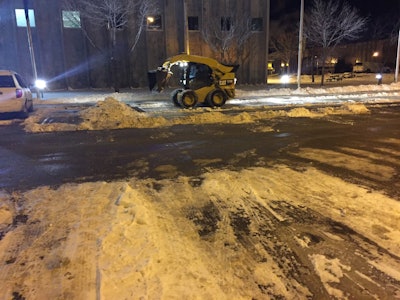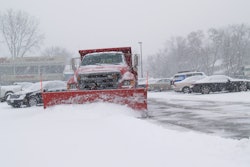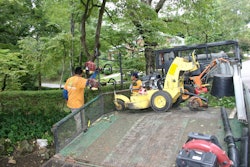
The risks associated with snow removal businesses are distinctly different from the risks a traditional lawn care or landscaping company faces. Because of those unique risks, it is important to speak long and honestly with your insurance agent about the activities your business does and does not partake in on a daily basis.
Here are five insurance policies that are essential to protect your business if you are working in the snow removal industry.
1. General Liability
General liability coverage will cover your business for the liability it faces to third parties that you and your employees come in contact with. It will cover bodily injury claims of third parties injured because of the actions of your business, along with property damage that occurs because of the actions of your organization.
2. Workers’ Compensation
Depending upon the state you operate in and the number of employees you have, you more than likely are legally required to purchase workers’ compensation coverage. For example, Missouri Workers Compensation Coverage is required for nearly all businesses with five or more employees.
A workers’ comp policy covers your employees for injuries that occur on the job. The employees will receive coverage for their medical expenses and some lost wages while they are not able to work. Most policies cover around 60% of the employee’s salary. Because of employee exposure to cold temperatures and the risk of slipping on ice, it is important to secure this coverage regardless of whether it is required in your state or not.
3. Commercial Auto / Hired and Non-Owned Auto
Commercial Auto is needed for the vehicles your business owns and operates for snow removal purposes. Whether you own the vehicles, lease them for the season or have your employees use their own vehicles, you need some form of commercial auto coverage.
If you have employees who operate rented vehicles or use their personal vehicles for snow removal, you will need to secure a hired and non-owned auto insurance policy. This may also be necessary if you hire independent contractors to help with snow removal. Hired and non-owned auto coverage will cover the liability your business faces to the damage of other vehicles or the property of third parties.
Any damage to an employee’s personal vehicle will be covered by the employee’s personal auto policy. For this reason, it is important to have all employees prove they have up to date coverage on the vehicles they are using. It is also important to keep up to date driving records on file for anyone who drives as a part of your business. Drug testing may be beneficial as well, depending upon the nature of your operations.
4. Inland Marine
A Commercial Auto Policy will cover the truck, but not the trailer or any equipment being transported on the trailer. Inland Marine Coverage will protect all of your specialized equipment while it is in transit on a trailer or in use off premise.
5. Business Owner’s Package
Most insurance carriers cater specific packages designed for each industry. Carriers have insight, due to historical claims by businesses throughout the country, to know what coverages are commonly needed in each industry. This can help the carrier and you the business owner to ensure adequate insurance coverage for your small business throughout the entire year.
Carriers also tend to give a bit of a discount if a business purchases all of its policies from one carrier as opposed to buying each coverage individually from a different carrier. Purchasing coverage from one carrier can also help prevent gaps in coverage or delays in claims handling because carriers have to determine exactly who is liable for the claim.
TIP: Always remember to speak with your agent
While you are securing some or all of these policies, it is crucial to notify your insurance agent that you are going to be working in snow removal during the winter months. If you work in a cold climate, your agent will more than likely ask if you perform snow removal services. Make sure you bring this to their attention—because if you do not operate in snow removal, the agent will probably exclude it from coverage. This helps to lower the amount you pay for premium. If you decide to add snow removal one year because of a colder than normal winter or some other reason, it is important for you to notify your agent. They can easily add the activity to your policy, usually at minimal cost to your business. If you do not add this provision to your policy, you are more than likely leaving your business at risk.



















